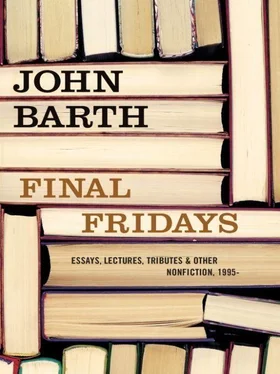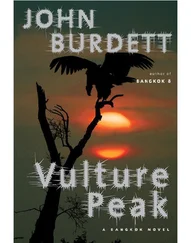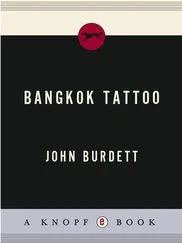Over the ensuing decades, Jack’s life had the wider radius, but Jill’s had much deeper roots: The Corkrans seldom left the Eastern Shore even on vacation, but they maintained warm connections with old friends, enjoyed golf games, crab feasts, weekend evenings at the American Legion hall, and raising their daughter Jo. Jill went from being named the Delmarva Poultry Festival’s “Chicken of Tomorrow” back in her teens to becoming Hurlock’s First Lady when her husband was elected mayor of that small town. And when Bob was sadly and prematurely taken from her by cancer while only in his fifties, Jill soldiered on: She taught my non-Maryland wife Shelly how to cook a softcrab and roast a goose; she presided over her daughter’s wedding and spoke fondly of her son-in-law; she oversaw end-of-life care and funeral arrangements for our parents and other elderly relatives (with a little help from her far-flung brothers and their wives, but Jill carried most of the load, and carried it ably indeed); she enjoyed her granddaughter’s talents and triumphs — and then bravely and cheerfully, when the time came, she made her own move from her house in Preston (not far from Hurlock and Cambridge) to a “continuing care” establishment in also-nearby Easton, where she lived out her final life-chapters, her accountant daughter presiding over her as Jill had done for her parents.
My closing, warmest memory of my twin is from not long after she made that move. In the summer of 2002, the Cambridge High School Class of 1947 celebrated its 55th reunion with a sunset cruise aboard a paddlewheel tour-boat from Suicide Bridge (yup, that’s its name), up near Preston, down the Choptank River to Cambridge and back, with dinner and dancing to live music. Much as my wife and my sister enjoyed each other’s company, Shelly had other commitments that day, and so I picked up Jill at her assisted-living place and we two enjoyed a lovely evening together with old school chums, reminiscing about (among other things) our long-ago Swingtette jazz combo. The high point of that evening, for me, was when one of those good buddies, whom I’d reminded that our group’s theme-song had been the smooth old 1930s ballad called Moonglow , passed that info along to the band without telling us. Next thing we knew, they were playing it for us — first time I’d heard it in maybe half a century! My old womb-mate and I set down our wineglasses and danced — not for the first time, certainly, but for the first time in too long a time, and for the last time, alas.
I can hear it now:
It must have been moonglow,
Way up in the blue….
Moonglow it was, Jill, on that moonlit river, our tidal birth-water — and moonglow it remains. Your old ex-wombmate and ex-roommate is in no hurry to become your tomb mate; but it’s poetically appropriate, I suppose, for Ms. Primo to lead the way in our tale’s last chapter, as she did in its first.
Rest in peace, dear Sis.
Foreword
1 New York: Putnam, 1984.
2 Boston: Little, Brown, 1995.
3 See “Keats’s Fears, Etc.”, the lead-off piece in this collection.
4 The Development: 9 Stories (Boston: Houghton Mifflin Harcourt, 2008).
5 Literally (which is to say, figuratively) “being breathed into again”: the CPR of artists in any medium.
Keats’s Fears, Etc.
1 As of 1997; another thousand-plus over the decade since. Scribble scribble scribble!
2 As of the date of this essay: Miller died in 2005.
State of the Art
1 xx:2, Spring 1996
2 Now defunct, alas.
3 See the essay “The Inkstained Thumb,” to follow.
4 Indeed, novelists such as Richard Powers and my former Hopkins coachee Vickram Chandra use everything from Microsoft Excel spreadsheets and Project logistics programs to voice-recognition software for organizing and composing their novels: See Rachel Donadio’s essay “Get With the Program,” New York Times Book Review , June 10, 2007.
5 See “The Accidental Mentor,” my 80th-birthday tribute to him, in the latter section of this volume.
6 For more on “Serial,” see the essay “‘In the Beginning, Once Upon a Time, It Was a Dark and Stormy Night’” farther on in this collection.
7 Coover himself, though a professor of e-lit, inclines to the p-variety for his own abundant and lively productions.
Two More Forewords
1 The five novels were The Floating Opera and The End of the Road (first published in 1956 and 1958, respectively, but reprinted in a single volume), The Sot-Weed Factor (1960), Giles Goat-Boy (1965), and Lost in the Funhouse (1968).
2 Thor Tool Company v. Commissioner of Internal Revenue, 439 U.S. 522.
3 In his knowledgeable and perceptive Reader’s Guide to Barthbooks (Westport, CT: Greenwood, 1993).
4 The War of 1812, which to us children of the Chesapeake ranks as high as the Revolutionary War because so much of it was fought in our home waters, was even at the time often called the Second American Revolution. It is this second, more than the first, that figures in the historical portions of LETTERS. And those who lived through the American High Sixties will remember the apocalyptic air of “Revolution now!” that hung like tear gas over our university campuses especially.
“In the Beginning”
1 New York: Anchor, 1996.
2 Subsequently published as Genesis: A Living Conversation (New York: Doubleday, 1996).
3 More precisely, I’m told, it means “In the beginning of .” Its deployment sans object in Genesis 1:1 is linguistically odd enough so that disagreement among Biblical commentators begins, appropriately, with this initial word of scripture. See, e.g., Robert D. Sacks, A Commentary on the Book of Genesis (Lewiston/Queenston/Lampeter: Mellen Press, 1990), pp. 2–3.
4 In fact, some such English adverb as Beginningly or Originally would be the formal-metaphoric equivalent of Bereshith. But beginningly , alas, is an over-selfconscious coinage, and originally is both forceless and inexact, implying some subsequent re-creation, as in “Originally the story began here, but later. .” et cetera. An analogous problem faces English translators of Marcel Proust’s À la recherche du temps perdu : That monumental novel about time opens with the word Longtemps , famously rendered and vitiated by C. K. Scott Moncrieff as “For a long time,” which moves the key word to fourth place. The poet Richard Howard’s version makes an ingenious restoration: “Time was. .” (in the sense “There was a time when. .”). See the essay “‘In the Beginning, Once Upon a Time, It Was a Dark and Stormy Night,’” farther on in this volume.
5 E.g., separation of the four elemental forces, prodigious inflation, reciprocal but not quite equal annihilation of subatomic particles and antiparticles, “quark confinement,” and the commencement of nucleosynthesis, all within the initial second of Planck Time.
6 Some commentators judiciously prefer “the sky and the earth,” inasmuch as the theological connotations of heaven play no part in this part of the creation-story. See Sacks, p. 4.
7 A history which itself rebegins in Chapter Five—“This is the book of the generations of Man,” et cetera — with its recapitulation of Man’s creation on Day Six of Chapter One and again in Verse Seven of Chapter Three.
8 Act Three — when, as Chekhov reminds us, all the pistols hung on the wall in Act One must be duly fired — will not be addressed in this essay: Armageddon, Judgment Day, the end of the created world in the Big Crunch of Apocalypse.
Читать дальше












